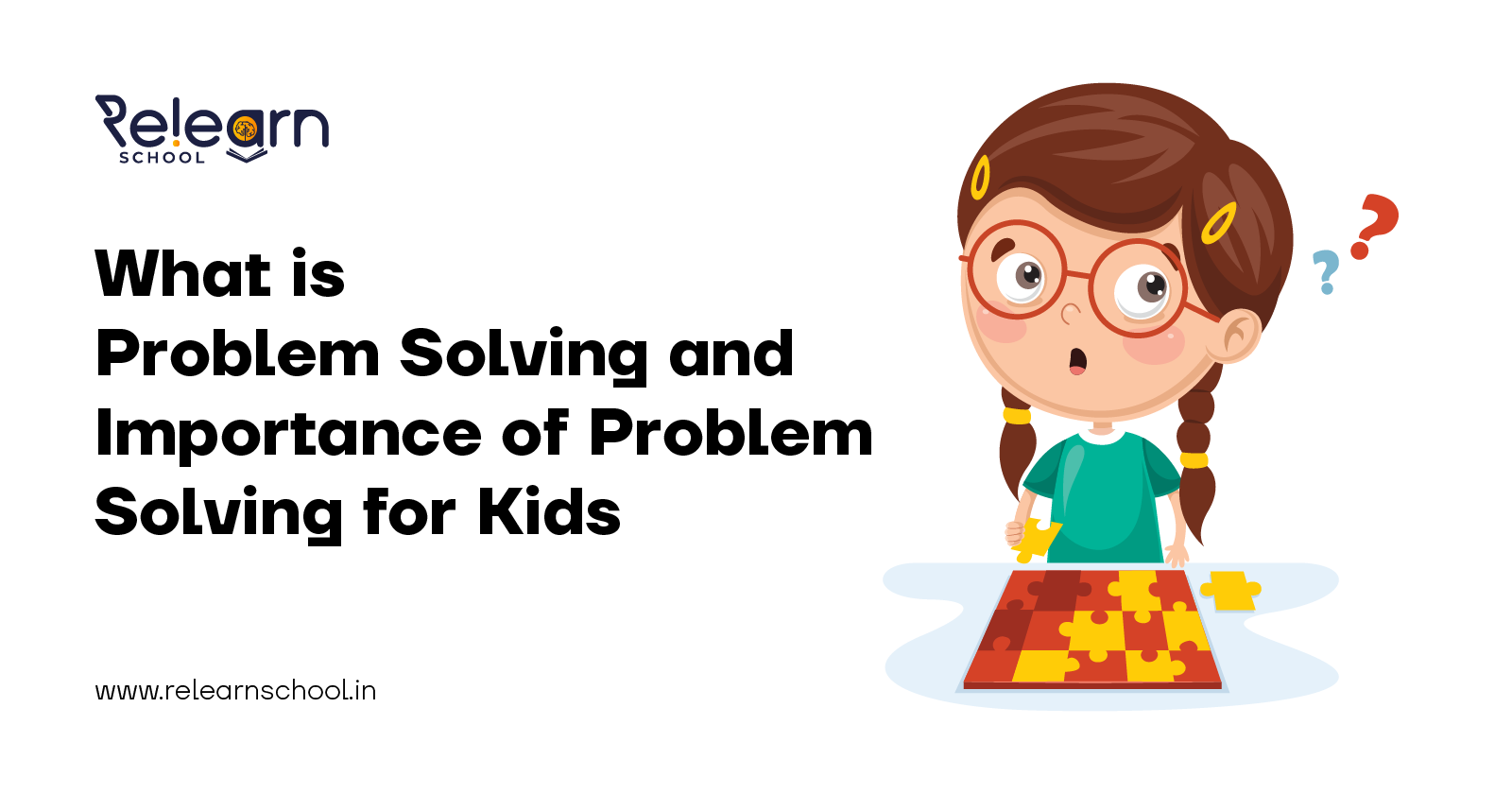What is Problem Solving and Importance of Problem Solving for Kids in 2023.
 Arun R
Arun R
One of the most significant cognitive abilities, problem-solving enables people to analyse problems, develop practical solutions, and reach decisions. It is essential for kids to start developing problem-solving skills at a young age because it is not just a skill that adults need. In a world that presents complex issues, nurturing this skill in kids can profoundly impact their future success.
What is Problem Solving?
At its core, problem-solving entails locating a problem, comprehending its causes, and developing solutions. It is a complex process that calls for reasoning, creativity, and the capacity to adapt when faced with unanticipated turns. Finding solutions is only one aspect of problem-solving; another is cultivating a mindset that seeks to comprehend, absorb, and advance from difficulties.
Why Problem Solving?
Children with problem-solving abilities can better navigate the uncertainties of life. The capacity to adapt and come up with novel solutions is priceless in the world of today, which is changing quickly. By encouraging kids to confront issues head-on, we give them the self-assurance to confront challenges rather than run from them. Children can approach various situations positively thanks to this proactive approach promoting resilience and a sense of control.
The Importance of Problem Solving for Kids:
Enhances Critical Thinking:
Through analysis, division into manageable components, and evaluation of potential solutions, problem-solving encourages children to develop critical thinking skills. They can evaluate information, weigh options, and make wise decisions.
Boost Creativity:
Children's capacity for creative problem-solving is developed when they are encouraged to think creatively. When traditional solutions fall short, children learn to devise novel solutions, developing an innovative spirit that will benefit them throughout their lives.
Boosts Confidence:
A child's self-esteem is increased when they successfully solve problems. Every accomplishment, no matter how small, strengthens their self-confidence. This steadily growing self-assurance is a strong foundation for taking on more significant challenges.
Teaches Decision-Making:
Making decisions is a necessary component of problem-solving. Children learn how to compare the advantages and disadvantages of various options, consider possible outcomes, and select the best course of action. This ability can be applied in various situations, such as interpersonal interactions and academic assignments.
Prepares for Real-Life Situations:
Life is full of difficulties that necessitate problem-solving abilities. Children taught problem-solving skills will have the skills necessary to handle academic, interpersonal, and career challenges as they mature.
Conclusion:
The importance of developing children's problem-solving abilities cannot be overstated in a world where constant change and challenges are numerous. Kids discover that difficulties are not barriers to growth but opportunities for growth through problem-solving challenges. To prepare the leaders of tomorrow for the challenges of the contemporary world, it is our duty as parents, educators, and mentors to build an atmosphere that improves curiosity, critical thinking, and creativity. Children's problem-solving abilities will be enhanced by the robotics, coding, and Vedic math we teach at Relearn School.
Subscribe to my newsletter
Read articles from Arun R directly inside your inbox. Subscribe to the newsletter, and don't miss out.
Written by
